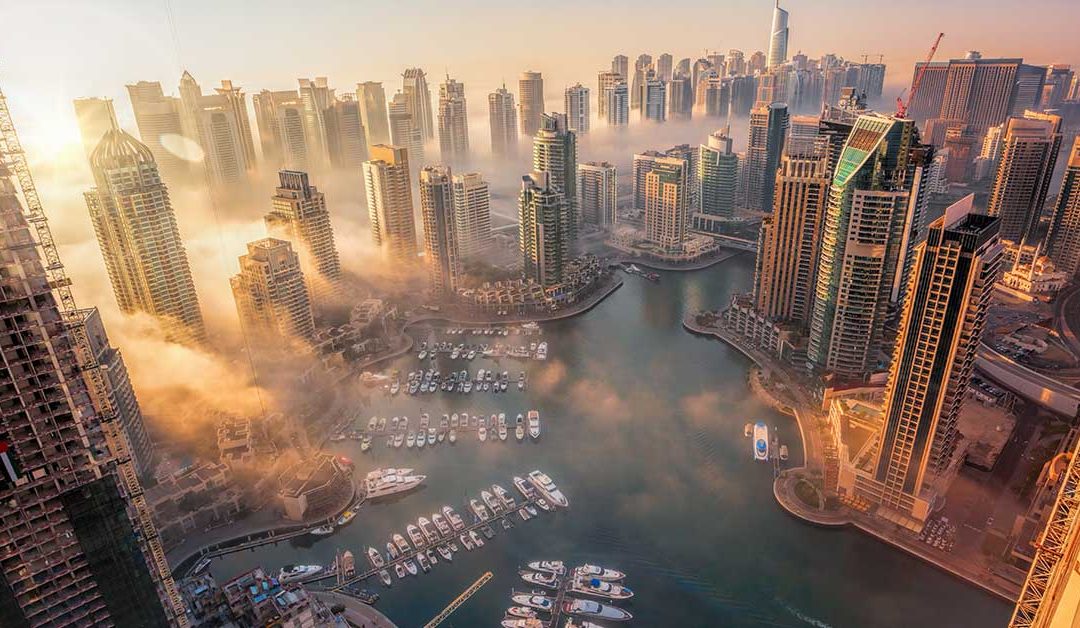Last updated November, 2025
Over recent years, the United Arab Emirates have seduced more and more expats from all around the world. Most of the expats move to Dubai and Abu Dhabi. Incredibly, statistics show that 92.02% or 3.53 million of the residents in Dubai are expats.
It’s now your turn, and you’re making the move to the UAE for a new life. It is always super exciting to move to a new country. Yet, relocating to the middle east may sound intimidating as it can be different from what you know or hear from your home country.
Well, there is nothing to worry about. In this article, we are going to guide you through all the things to know when moving to the UAE.
Get Ready For a Sub-Tropical and Arid Climate
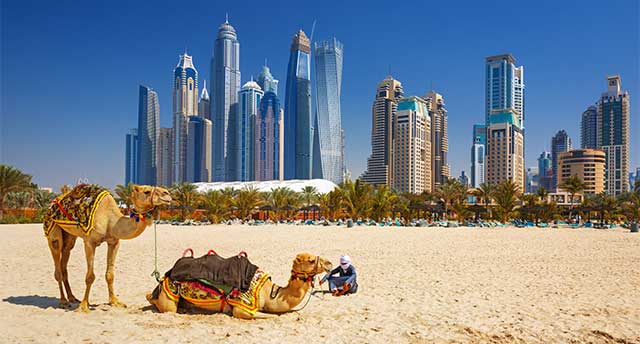
Coming from Australia, you are probably already used to a warm to arid climate depending on where you live. However, Dubai takes the hot weather to another level during summertime.
Temperatures in summer typically range from 30 °C to 40 °C, occasionally exceeding 45 °C during extreme heat, while nighttime temperatures usually stay around 28–32 °C. Air conditioning is essential in all types of buildings, from malls to apartments.
Winter is more comfortable, with daytime temperatures around 20–25 °C and cooler nights rarely dropping below 10 °C. Being in the desert, the UAE can experience occasional sandstorms, mainly during spring.
Everyone Speaks English
Sometimes when relocating to another country, like France, you may need to speak the local language before moving. In the UAE, it’s slightly different. If you are moving to Dubai or Abu Dhabi, not knowing Arabic is usually not an issue, as English is widely spoken in business, education, and daily life.
This is because cities like Dubai have a large expatriate population from all over the world, making English the most commonly used language among residents and businesses.
That said, Arabic is still the official language, and learning a few basic phrases can go a long way. Locals appreciate when you make an effort, and it can help you connect with people outside the expat community, making your experience more enriching and immersive.
Middle Eastern Culture and Religion Are Difference
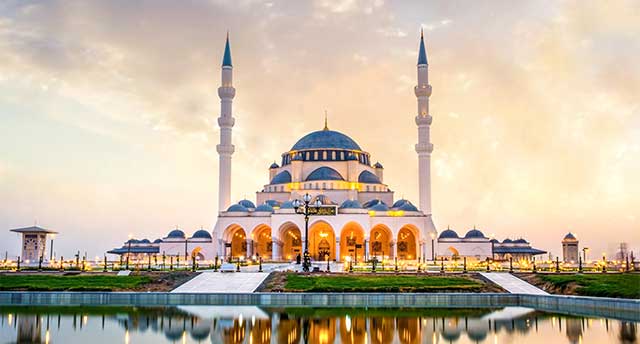
Moving to the UAE means relocating to a Muslim country, where culture and daily life are shaped by Islamic traditions. This comes with different customs and social expectations, so it’s important to approach your move with respect and cultural awareness.
On the religious side, anything that disrespects Islam is prohibited. There are strict laws against blasphemy and proselytising. During Ramadan, non-Muslims should avoid eating, drinking, or smoking in public during daylight hours, as this is considered disrespectful. However, many restaurants and cafes now offer screened indoor areas for non-Muslims during fasting hours.
That said, the UAE is home to a diverse population and promotes religious tolerance. You’ll find churches, Hindu temples, and other places of worship—particularly in Dubai and Abu Dhabi—reflecting the country’s multicultural identity.
On the cultural side, modest dress is expected in public areas, especially in government buildings, malls, and traditional neighbourhoods. Women should avoid wearing clothing that is too short or revealing, and men should refrain from sleeveless shirts or very short shorts. Swimwear is acceptable at hotel pools, private beaches, and resorts, but not in public spaces or on city streets.
Is UAE a Safe Place to Live?
The United Arab Emirates consistently ranks among the safest countries in the world. According to the 2025 Numbeo Safety Index, the UAE is ranked second globally for safety, with more than 96% of residents saying they feel safe walking alone at night — one of the highest rates worldwide. This makes the UAE a highly secure relocation destination for families and individuals.
Crime rates, including violent crime, theft, and scams, are exceptionally low compared to most major cities worldwide.
The country’s strict laws and extensive surveillance systems contribute significantly to this safety. Dubai’s Oyoon programme alone integrates over 300,000 cameras equipped with facial-recognition and analytics across the city. Other estimates suggest camera density in Dubai is about 800 per square kilometre, making it one of the most monitored cities in the world.
While the UAE’s laws and enforcement are more conservative than in Australia, most expats find the country to be safe, family-friendly, and welcoming. Communities are well-maintained, public spaces are clean, and respect for others is deeply embedded in daily life but make sure you follow the rules and laws. Here is more information on rules and laws you must know.
Living in the UAE as Woman
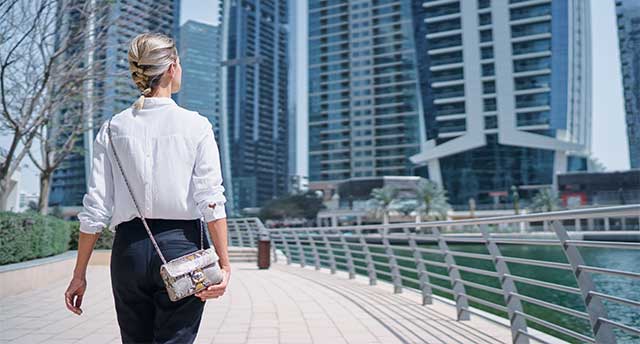
Relocating to a country with a different culture and religion can mean several changes for the whole family. In the UAE, the constitution guarantees equal rights for men and women. That said, public behaviour and dress standards are shaped by local customs and social norms.
There is no legal requirement for women to wear a hijab or abaya in most public areas. However, modest dress is expected: covering shoulders and knees is advised in government buildings, malls and traditional areas. In resort settings or private residences, Western‑style attire is commonly accepted.
Other important public‑behaviour rules apply when you move to the UAE with your partner or family. For instance, overt displays of affection (like prolonged hugging or kissing) can be penalised — even for married couples — in certain public spaces.
When it comes to public transport and gender‑specific facilities, some emirates offer dedicated services for women, children and families. In such sections, only women (and children) are permitted and men may face fines if they enter.
Make the Most of The Ladies Night
Ladies, if you like partying or being with your friends, this is for you. Tuesdays are your dedicated nights called “Ladies Night” in Dubai and other places across the country. Basically, you can find clubs and pubs offering ladies special offers and deals. You will have a big discount on the menu and the most beautiful part are the free drinks!
While those nights used to be only on Tuesdays, they are now all along the week. It’s definitely a great way to meet new people in a convivial environment.
Tuesday nights are definitely your night out ladies.
Weekends Are Different
Well, they’re not really different… However, what is different are the days of the week on which the weekend falls: Friday and Saturday.
You may find it odd, but there is a reason. For instance, in the Christian religion, Sunday is the holy day so it is a non-working day for many people. As the AUE is a Muslim country, Friday is the holy day making the first day of the weekend.
You need to know most often people do not work on Friday, much like a Sunday in other countries. In regard to Saturday, it varies and will depend on the company you work for and the area you live in. Indeed, public companies tend to not work on the weekend while other companies such as supermarkets etc… will be open.
Drinking Alcohol? Get Your Permit And follow the Rules
Many people assume alcohol is completely prohibited in the UAE. While it is a Muslim country with strict regulations, this isn’t entirely true — non-Muslims can legally consume alcohol, but only under specific rules.
Residents who wish to drink at home must obtain a personal alcohol licence. Visitors do not need a licence to drink at licensed venues such as hotels, bars, or restaurants.
It’s important to remember that alcohol consumption is strictly regulated:
-
Drinking in public is illegal.
-
Being intoxicated in public can result in fines, detention, or deportation.
-
Driving under the influence is a serious criminal offence with severe penalties.
Following these rules ensures you can enjoy alcohol safely and legally while respecting local laws and customs.
Brunch and Arabic Food
If you love brunch, get ready — the UAE, especially Dubai and Abu Dhabi, takes it to a whole new level. Hotels and restaurants offer elaborate brunches with a mix of local and international dishes, sometimes running for several hours. For food lovers, it’s a fun way to explore new flavours and meet people in a social, lively setting.
When it comes to traditional Emirati cuisine, you’ll discover a range of unique tastes: Kabsa — a spiced rice dish with lamb or chicken — is a staple, and dates are enjoyed as a sweet treat or snack. You might even encounter camel milk products, which are considered a specialty.
Overall, relocating to the UAE offers a culinary adventure: from rich local dishes to international cuisines, your taste buds are in for an exciting ride.
Living in the UAE is Not Cheap
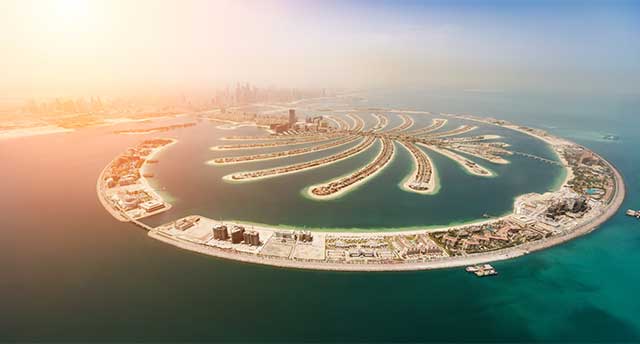
The UAE is not generally considered an inexpensive country to live in. According to the Numbeo Cost of Living Index 2025, Dubai remains the most expensive emirate, followed by Abu Dhabi, with Sharjah, Fujairah, and Al Ain offering relatively more affordable options.
Real estate and rental costs are the largest expense for most residents. In Dubai and Abu Dhabi, housing can account for around 40–50% of a monthly salary, depending on location and type of accommodation. Many expats live in high-quality apartments or villas, often with amenities like pools, gyms, or concierge services.
On the other hand, utilities such as electricity, water, and internet are generally reasonable, though they vary based on property size and usage. Extra costs — for example, pool maintenance or building service fees — should also be factored in when budgeting.
Overall, while the UAE offers a high standard of living, planning ahead and understanding costs can help ensure a comfortable and manageable lifestyle.
The UAE Are (Mostly) Tax-Free
Many expats are drawn to the UAE for its tax advantages, but it’s important to understand the details — “tax-free” does not mean there are no taxes at all.
In Dubai and most emirates, there is no personal income tax for employees or freelancers, making it attractive for professionals relocating from countries with high income tax rates.
To diversify revenue beyond oil, the UAE introduced a Value Added Tax (VAT) of 5%, which applies to most goods and services. This is significantly lower than VAT/GST rates in countries like Australia (10%). Other taxes may apply depending on location; for example, rental fees in Abu Dhabi can include a municipal tax component.
Tax obligations can also vary based on your residency status, visa type, and source of income, so it’s always advisable to consult a local tax expert or the official government portals for up-to-date guidance.
Relocation to the UAE
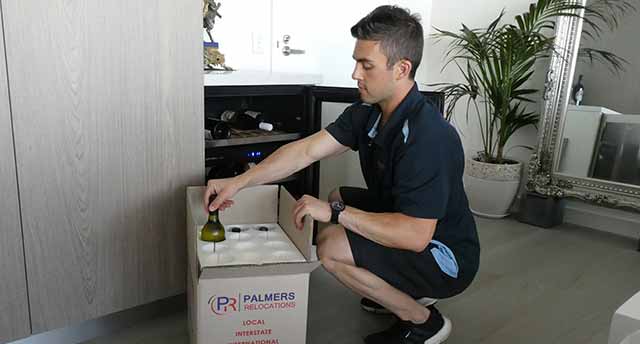
Relocating to the UAE involves careful planning, especially when shipping household goods and personal belongings. Working with an experienced removal company can simplify the process, ensure your items arrive safely, and help you navigate customs and local regulations.
At Palmers Relocations, we have decades of experience moving expats to Dubai, Abu Dhabi, and across the UAE. Whether you need a full container or prefer shared shipping options, we tailor our services to suit your needs.
Our team will assist you throughout the entire international relocation process — from packing and packing materials to transportation, customs clearance and delivery — giving you peace of mind and a smooth transition into your new home.
Get Started Today: Contact our friendly team to discuss your relocation requirements and receive a personalised plan. Call 1300 363 916 or visit Palmers Relocations to get started.

